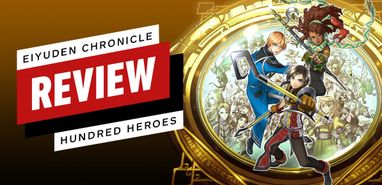
Eiyuden Chronicle: Hundred Heroes marks a new chapter as the spiritual successor to the beloved JRPG Suikoden, born from a wildly successful Kickstarter campaign. With little prior experience with Suikoden, I ventured into Hundred Heroes expecting a complex, somewhat archaic gaming experience. Surprisingly, while it has its moments of frustration and complexity that will likely appeal to long-time fans, it is also remarkably accessible. The game introduces new players to a combat system that is straightforward and a narrative that is emotionally rich and expansive, proving to be thoroughly rewarding.
For those unfamiliar with Suikoden or the prequel Eiyuden Chronicle: Rising, fear not. The standalone storyline of Hundred Heroes unfolds across a vast, war-torn continent, easy to follow and inviting for newcomers like myself who can sometimes get lost in the details of complex plots.
In the world of Allraan, a nefarious king named Dux Alric leads the Galdean Empire with dark intentions. His desire to harness the powers of the mystical Rune Lenses for malevolent purposes sets the stage. You step into the shoes of Nowa, a member of a benevolent group of mercenaries, who finds himself entangled in Alric’s sinister schemes. With determination, and prompted by a determined leader with a possible hidden agenda, Nowa sets out to thwart these evil plans by assembling a powerful team of over a hundred heroes.
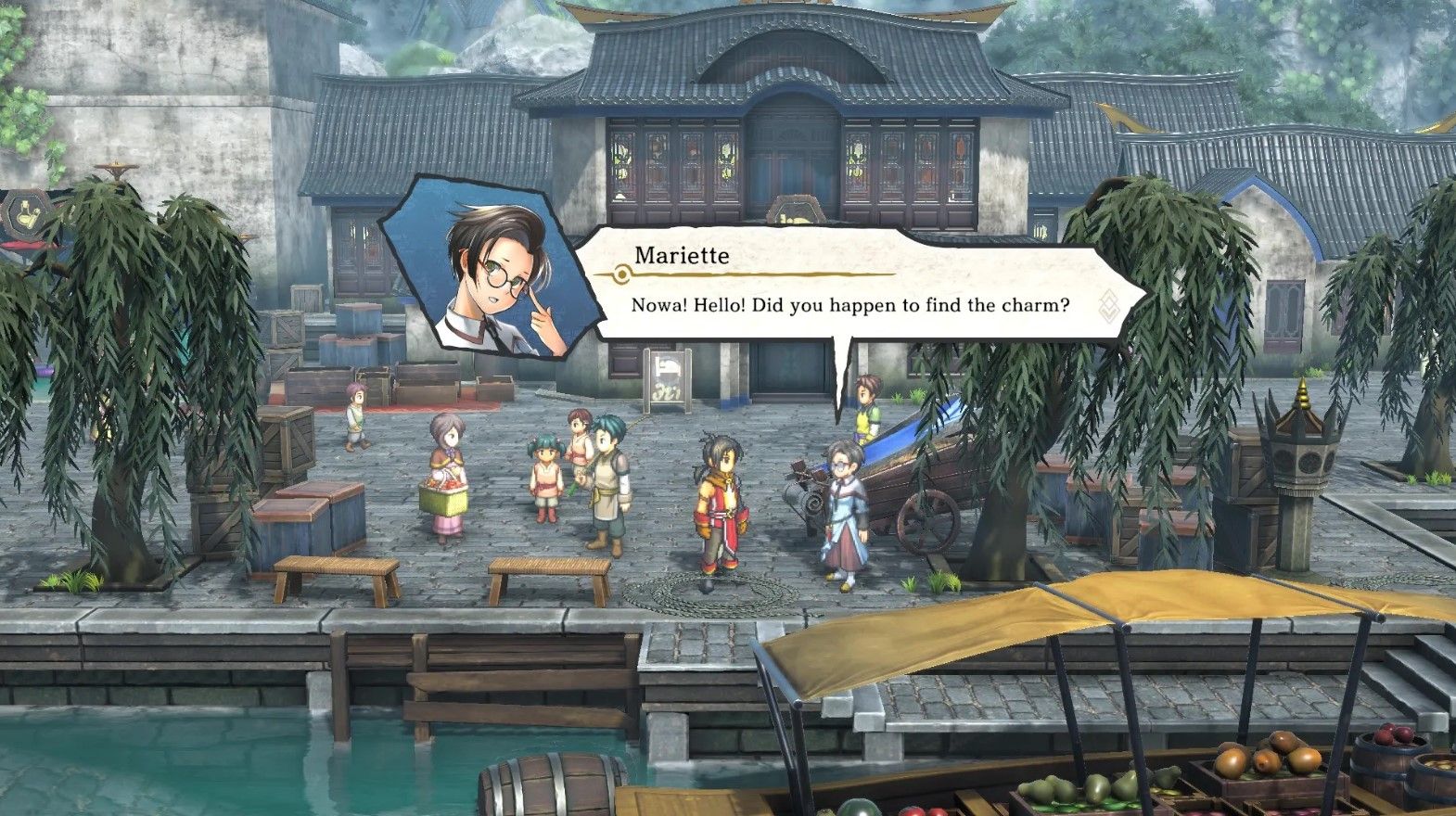
I’ll avoid delving into spoilers, but I can share that the narrative intricately weaves Nowa’s adventures with those of an Imperial youth named Seign and a forest dweller named Marisa. The story is masterfully told through intimate, smaller narratives that help paint a broader picture, making the complex history of the Rune Lenses accessible through a direct, hands-on quest that cleverly adds depth without becoming convoluted.
Gameplay involves navigating a variety of beautifully crafted environments, from bustling towns adorned with Chinese-inspired architecture to quaint icy hamlets and monster-filled oases. Reminiscent of classic Final Fantasy 7, these locations are represented as blocky segments on a compact 3D map, enhancing the illusion of traversing vast distances.
The game rhythmically moves you from one town to the next, each tied to the local lore, eventually leading to intricately designed dungeons. While early forest paths and hidden treasures offer some enjoyment, some dungeons can become tedious with their repetitive corridors and straightforward puzzles, interrupted by frequent random encounters.
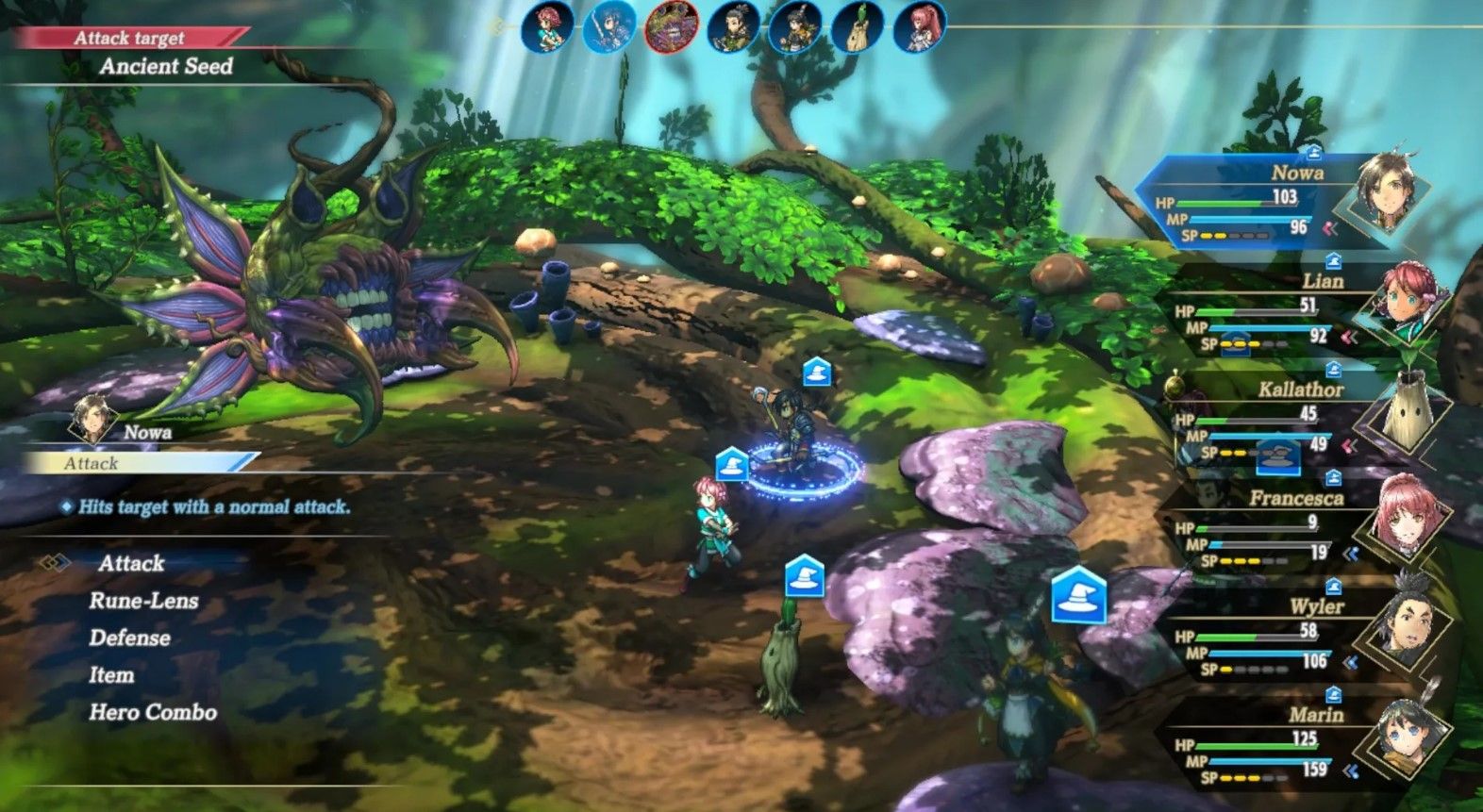
Combat is traditional turn-based with a twist: a lineup bar displays both allies and foes, enhancing strategic planning. You command a team of six, with frontline warriors and backline mages or rangers. Although I often resort to the “auto” mode, which handles 90% of battles effectively, including bosses, it exposes the combat system’s limitations and a lack of deep strategic options.
While there are no elaborate systems like those in Shin Megami Tensei 5 or Final Fantasy 8, hero combos provide some tactical fun, allowing specific characters to unleash powerful moves that are a delight to watch.
Recruitment of diverse characters across Allraan adds a layer of strategy and excitement, offering numerous possibilities for team configurations, though changes are limited to save points. The leveling system is well-designed, ensuring that new heroes can catch up quickly, preventing them from becoming obsolete.
The game also features climactic battles that employ a grid-based strategic mode, akin to Fire Emblem. These battles, while not overly complex, add a strategic layer that allows casual strategy fans to engage without feeling overwhelmed.
Off the war zone, Legends find a home in your Palace, which exists as a centerpoint for your military, and a settlement you put resources into throughout the game. It’s something colossal, a piece like Yakuza’s Dondoko Island, that could have its different smaller than expected survey. However, I will say that it’s a wonderful place to see your companions gather, a straightforward method for reaping resources more dependably later on, home to fun minigames (cooking, racing, Beyblade) and its development acts as an epitome of your progress.
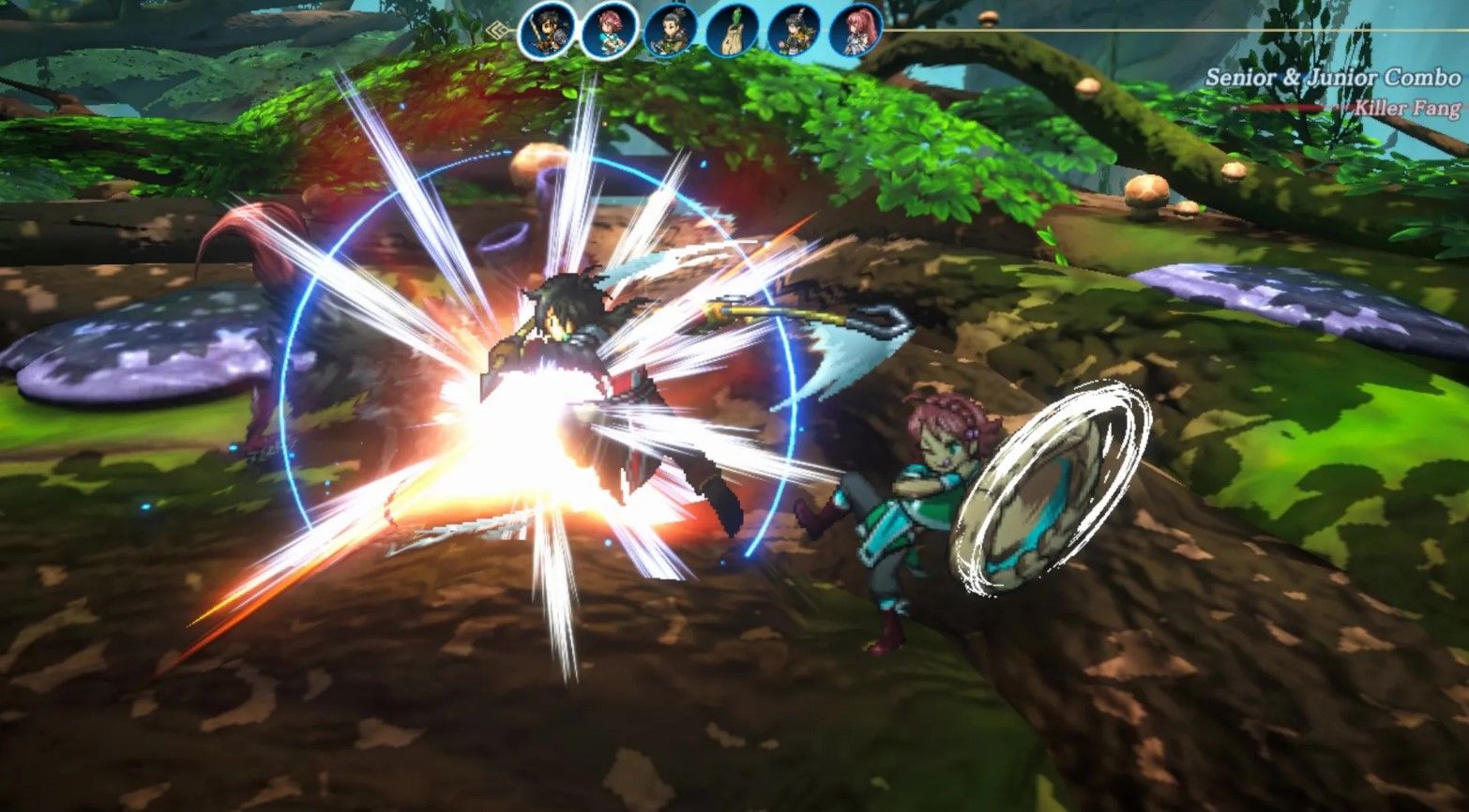
Hundred Legends has some old-fashioned tendencies, and they can be challenging to live with at first, but once you settle into those quirks, it’s a story you’ll struggle to put down. The sense of journey is splendid, as you trek across icy valleys, lush jungles, and dusty deserts, picking up friends along the way. Moreover, you regularly partake in moments that will truly surprise, keeping your journey from becoming stale. Expect one-on-one duels, cinematic sequences, and races of some description. If you’re a fan of Suikoden, it’s a no-brainer. And if you love JRPGs or struggle a bit with dated elements, I’d still encourage you to give it a try. It’s a genuinely lovely experience.
Eiyuden Chronicle: Hundred Heroes masterfully blends nostalgic JRPG elements with fresh, accessible gameplay, making it a standout addition to any gamer’s collection.
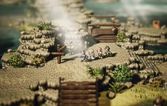
By Andrej Kovacevic
Updated on 23rd April 2024